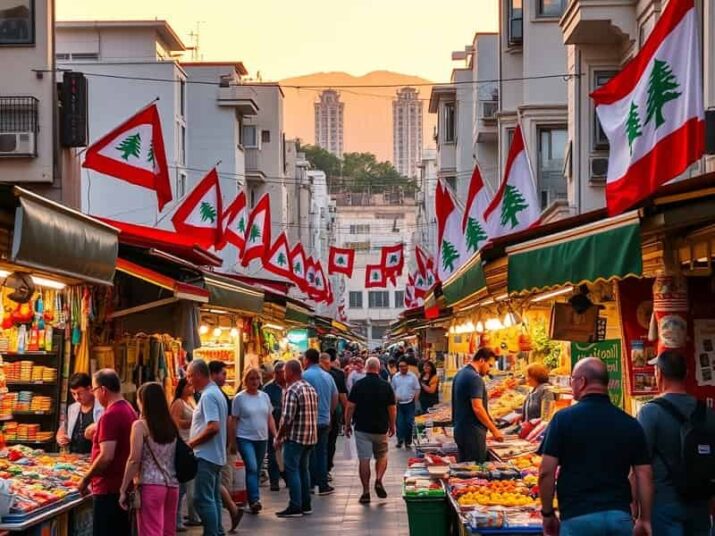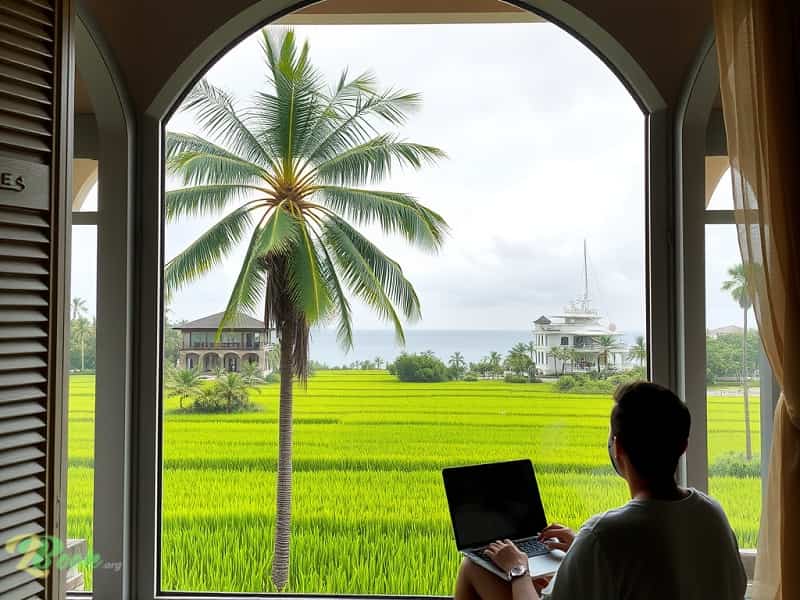The Impact of Wars on Human Values and Ethics
The Impact of Wars on Human Values and Ethics
Introduction
Wars and armed conflicts are not merely historical events; they are human experiences that profoundly affect societies and individuals. When people think of war, images of battles and destruction often come to mind, but the story goes much deeper. Wars leave deep scars on ethics and human values, influencing how individuals interact with one another and their communities.
Having lived in Europe for over 17 years, my experience was not merely an escape from the wars that plagued my homeland but also a search for peace, safety, and hope. Upon returning to my country, I faced a painful reality: my homeland had been significantly affected by ongoing conflicts, making me realize that wars not only impact infrastructure but also penetrate the depths of ethics and values that bind individuals together.
This article explores the effects of wars on ethics and human values, focusing on the personal experience of a returning migrant. We will discuss how these changes affect individuals and communities and present recommendations to help societies recover.

The Impact of Wars on Ethics and Values
Erosion of Human Values
Wars lead to the erosion of human values, where concepts like compassion and empathy decline. In the harsh conditions imposed by wars, survival becomes the priority, prompting individuals to make decisions that may contradict their ethics. People often find themselves compelled to make difficult choices, justifying violence or deceit as a means of survival. The human values that once formed the foundation of interactions between individuals diminish, leading to the emergence of unethical behaviors.
In societies suffering from conflict, violence, and exclusion, methods become common for dealing with tensions. This deterioration in ethics can result in a loss of trust among individuals, leading to the disintegration of the social fabric. Communities become more divided, viewing the other as an enemy, which fosters feelings of hatred and discrimination. This manifests in people’s behaviors, as moral principles decline and violence is accepted as a means of expressing discontent and anger.
Loss of Trust Between Individuals
Wars contribute to the loss of trust between individuals and communities. When people are forced to confront violence and displacement, their trust in others diminishes, leading to feelings of doubt and suspicion. In communities that once lived in peace, social relationships become characterized by caution. This climate of mistrust can create cycles of suspicion, where individuals become unwilling to open up to one another or build new relationships.
For instance, in Lebanon, where I lived, people enjoyed strong social connections. However, after years of war, it became challenging for individuals to rebuild that trust. Friends who were once considered family turned into strangers due to their traumatic experiences. This transformation in relationships destroys social bonds and makes it difficult for the community to heal.
The Impact of Violence on Behaviors
Wars lead to the escalation of violence, which directly reflects on individuals’ behaviors. When violence becomes a means of expressing pain and anger, it transforms into a behavioral pattern that individuals adopt. This shift is not merely an immediate impact; it extends to future generations, normalizing violence as part of daily life. In conflict-affected communities, violence becomes an accepted behavior, where people become accustomed to witnessing and justifying it.
Individuals often rationalize violent actions as survival tactics or natural responses to stress. This slide into unethical behaviors can lead to the normalization of violence within societies, where using force becomes a standard way of resolving disputes. This learned behavior can persist across generations, making society more vulnerable to violence and conflict in the future.
The Impact of Wars on Identity
Disintegration of Collective Identity
Wars lead to the disintegration of collective identities. When communities face conflict, it becomes challenging to maintain cultural and social ties. The cultural fabric unravels, resulting in a loss of collective identity. In Lebanon, I witnessed how war has torn apart the connections between communities, and it was painful to see how many lost their sense of belonging.
Individuals face challenges in defining their identity, leading to feelings of alienation and disconnection. Under these circumstances, individuals may feel compelled to adopt new identities, complicating the issue of selfhood. This cultural disintegration can affect future generations, as children grow up in environments lacking stability and shared identity.
Reshaping Individual Identity
Amid wars, individuals strive to reshape their identities as a way to cope with new circumstances. Some may seek to reclaim their original values, while others may adopt new identities that fit the current situation. This search for identity can be a source of internal conflict, as individuals grapple with their past and future. Those who have lost family members or homes may feel that their identity has been destroyed, leading to a crisis of identity that can last for years.
During wartime, individuals often find themselves forced to abandon certain aspects of their original identity to integrate into a new society or adapt to their changing surroundings. This loss can have negative effects on mental health, as individuals feel disconnected from their roots, increasing feelings of sadness and anxiety.
The Effects of Wars on Social Relationships
Disintegration of Families
Wars lead to the disintegration of families, as many individuals are forced to migrate or separate from loved ones. This disintegration leaves deep emotional scars, as individuals suffer from the loss of social and emotional support. In the cases of many families, it was challenging to restore familial relationships that had eroded over the years of conflict. Once cohesive families may turn into scattered groups, weakening family bonds and affecting individual stability.
Research shows that children raised in broken families often experience psychological issues, impacting their personal and social development. The loss of familial support can lead to increased rates of depression and anxiety among children, reflecting the profound impact of war on future generations.
Rising Rates of Suicide and Depression
Rates of suicide and depression increase in war-affected communities. Feelings of despair and hopelessness become common, adversely affecting the mental health of individuals. When people feel they have no control over their fate, they may resort to suicide as a means of escaping pain and suffering. Studies show that individuals who experience trauma due to wars are at greater risk for depression and psychological disorders.
These mental health crises require urgent intervention from communities and governments to mitigate their impacts. Psychological support programs must be continuously available to help individuals overcome their traumatic experiences and foster a sense of hope.

The Impact of Wars on Youth and Children
Impact of Wars on Education
Education is one of the most affected areas due to wars. When schools are disrupted and destroyed, children lose their opportunity for education, impacting their future. Many children raised in conflict-laden environments do not receive adequate education, increasing the likelihood of poverty and unemployment in the future.
These conditions negatively affect skill and knowledge development, making it difficult for youth to reintegrate into society after the conflict ends. Education should be prioritized in recovery efforts, as it represents a critical tool for building a better future.
Effects on Children’s Mental Health
Rates of mental health disorders among children living in conflict zones are increasing. Children face harsh experiences, such as losing parents or being displaced, leading to mental and psychological issues. Continuous exposure to violence and anxiety can result in problems like depression, anxiety, and post-traumatic stress disorder.
It is essential to have dedicated psychological support programs for children to ensure they receive the help needed to recover. These programs should focus on providing emotional and social support, assisting children in coping with their challenging experiences.
Community Responses to Ethical Changes
Enhancing Psychological and Social Support
In facing these negative changes, communities must strive to enhance psychological and social support programs. These programs can include counseling sessions, workshops for dealing with trauma, and providing safe spaces for emotional expression. These efforts aim to help individuals cope with the effects of wars and restore their sense of hope.
Psychological support should be continuously available, not just as a response to crises. By providing ongoing support, individuals can feel that they are not alone, which enhances their ability to recover.
Promoting a Culture of Peace
Promoting a culture of peace is vital for addressing the ethical changes resulting from wars. Through education and awareness campaigns, communities can adopt values of tolerance and cooperation, helping to build trust among individuals. This culture should encourage dialogue and understanding as a means to resolve conflicts.
Efforts should also include promoting the arts and culture as a means of human expression, helping to strengthen social bonds and reduce tensions.
Recommendations
The Importance of Education in Enhancing Human Values
Education should focus on enhancing human values and tolerance, helping future generations understand the importance of peace and cooperation. Educational programs should include lessons on human rights, history, and social justice to raise awareness and teach individuals how to interact positively. Special emphasis should be placed on teaching children and youth how to resolve conflicts peacefully through dialogue.
Creating Dialogue Platforms
Establishing dialogue platforms among various social groups can enhance the rebuilding of trust and understanding. These platforms can include workshops, conferences, and support groups where individuals can share their experiences and express their opinions. These platforms provide an opportunity for individuals to process their emotions and discuss issues constructively affecting their communities.
Promoting Community Participation
Community participation in decision-making should be enhanced, allowing individuals to have a voice in issues affecting their lives. By promoting local democracy, individuals can feel that they have a role in shaping their communities’ futures, fostering a sense of belonging and trust.
The Impact of Wars on Cultural Heritage
Loss of Cultural Heritage
Wars lead to the loss of cultural heritage, as historical monuments, libraries, and cultural centers are destroyed. This loss not only affects collective identity but also impacts the historical memory of future generations. There must be dedicated efforts to preserve cultural heritage and enhance pride in cultural identity.
Reviving Culture After War
After the conflict ends, reviving culture becomes an essential part of recovery. Through arts, music, and literature, communities can express their experiences and history. Cultural initiatives that enhance identity and help heal the wounds of war should be supported.

Conclusion
The impacts of wars on ethics and human values demand serious work from all of us. By promoting dialogue, education, and psychological support, we can help build more tolerant and cohesive communities. Working for peace does not just require ending conflicts; it also necessitates rebuilding what has been destroyed.
We must work together, as individuals and communities, to uphold human values and foster a culture of peace. We must be cautious in how we interact with one another and be ready to make the necessary efforts to build a society characterized by tolerance and respect. By fostering human values, we can create a better world for everyone and ensure that future generations live in a safer and more peaceful environment.
My experience as a returning migrant reminds me that human values are what give life meaning. Despite everything I have been through, I feel that returning home was essential for renewing my bonds with my country. I believe that working to enhance human values and building a community grounded in tolerance and respect is the only path toward achieving peace.
Through collective efforts, we can achieve a world filled with hope and understanding.
Related Posts
- Fluctuating Generation and How Can Overcome Superficiality
- How to Build Positive Habits That Last a Lifetime
- Effective Strategies for Managing Stress at Work and Life
- Ignoring Emotions: Are We Living in an Unempathetic Society?
- Deception Among Christians: Faith and Contradiction
- How to Overcome Malice and Hypocrisy in Daily Life
- Pollution of Minds and Hearts: A Call for Redemption







